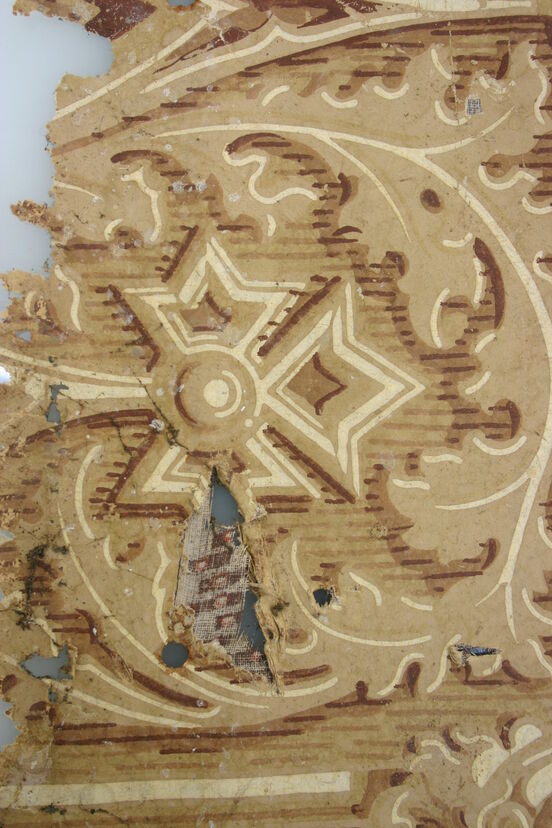European settlement in New Zealand happened at the same time as enormous advances in the wallpaper industry enabled it to be produced in quantities never before imagined. Wallpaper fashion reflected the convention that each room within a house should be decorated differently and in a style and colour which reflected its use: it was only walls in service spaces that were not papered. Wallpaper enabled many to enjoy the latest decorative styles cheaply and quickly in response to changing fashion and taste.
Quite separate from the naturalistic, geometric, or revivalist designs typical of any period, were the papers printed in imitation of real materials. Decorative linings such as hand woven or printed fabrics, exotic or expensive materials, traditionally the domain of only those who could afford them, were imitated on paper and found their way into parlours and bedrooms. Natural, processed or manufactured materials were also mimicked by the printing process. On display are papers in imitation of timber panelling, profiled mouldings, cast iron, stone and granite.
Heritage and conservation designer Stephen Cashmore has collected wallpaper fragments for over thirty years. Recognizing the importance of establishing a library of samples, which add authenticity to restoration work, he now has a collection of several hundred samples. Most have been salvaged from rubbish skips or removed personally from buildings being upgraded.
